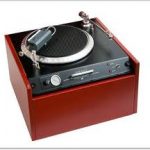I’ll start with what I do and then try to give some simple reasoning behind the thinking.
About half my total vinyl purchases are from charity (thrift) shops and from secondhand (used) record shops. Most of these shops are not the type that clean and grade their stock. The best indication of likely quality is a clean sleeve, not too much dust and not too many finger marks on the record itself. I always clean these records before playing. They usually end up looking really good and sounding somewhere between fabulous and OK.
Sometimes the best looking example is the worst sounding, but until I get to play them there is no way to judge.
Once cleaned a record is given a new polylined inner sleeve as there is little point in putting a clean record in a first sleeve.
New records are rarely cleaned before first play and only maybe 20% are cleaned at all when new. If they are significantly noisy and from a reputable supplier they go back for replacement. If they are from a less easy to communicate with source such as a stall at a hi-fi show or a record fair they will get cleaned.
So does the record cleaning help? A simple answer: yes. It doesn’t make damaged records perfect, but it does clean out crud, whether that is excess mold release agent, leaching plastizers, or just dirt. On some records is removes a good amount of the clicks and pops and on others it just removes a level of low-level masking.
My Rega RP6, Audio Technical OC9II combination is very enjoyable to listen too but it is quite sensitive to click and pops. Unfortunately, no cleaning will remove those that are ground into the surface of the grooves. Some great looking records sound as if they have been played with a knitting needle.
I don’t believe it’s a good idea to clean records too often (once a year is as often as I will ever contemplate), as I believe that over cleaning, whether too often or with too strong a cleaner, is the reason for some enthusiasts saying cleaning makes records sound worse. I believe an over cleaned record, which has had too much plastizer stripped out of the groove, just wears too quickly and becomes noisy quickly.
I’ve linked below to two zipped files. Both the same section of a Bryan Ferry track. The first recorded as the record came out of the sleeve after buying it at my local Cancer Research charity shop. The second, the same record, after a clean using Keith Monks Break the Mold fluid on the Keith Monks Classic Record Cleaning machine.
The recording was achieved using the Pure Vinyl 4 app on a Mac mini. The ADC was a Zoom TAC-2 set to 24bit 88.2kHz, chosen at it is an easy down sample to CD resolution for anyone without a hi-res DAC. The files are zipped aiff.
I’ll leave you to draw your own conclusions but may I suggest that you concentrate less on the clicks and pops and more on the inner detail, the tonal quality of the backing singers and the way you may find you interact differently to both track excerpts.
One small but essential piece of advice. if you decide to invest in a Record Cleaning Machine make sure it’s a quiet one. An afternoon cleaning records wearing ear defenders is not fun. An afternoon cleaning records listening to the record you have just cleaned is great fun.
If you don’t feel the expenditure is worthwhile consider visiting a hi-fi retailer or record shop that offers record cleaning services once in a while. Start with a couple to check their care and attention and if all’s well get a few of your noisier, muckier records cleaned.

